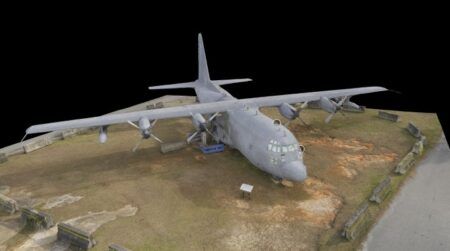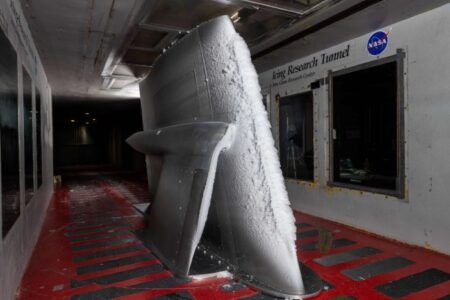Engineers have demonstrated the autonomous taxiing of an aircraft for the first in Brazil as part of a research project between Embraer and the Universidade Federal do Espírito Santo in Vitória.
For the six month project the researchers modified the Embraer test aircraft that was used for the development of the Legacy 500 and Praetor 600 by integrating the Intelligent Autonomous Robotic Automobile (IARA) system. The IARA system has been developed for use in autonomous cars research at the Ufes High Performance Computing Laboratory.
The prototype used sensor and video images with AI algorithms to move along a previously established path without human interference while taxiiing. A pilot followed the cockpit operation in case of any interference. The test took place in August, at Gavião Peixoto, in São Paulo state.
The IARA system combines laser sensors , GPS and cameras, as well as systems integration into the aeronautical platform. The autonomous land navigation system was tested in a simulator during preliminary assessments prior to the physical testing.
Daniel Moczydlower, Embraer’s executive vice president of engineering and technology said, “Our strategy for technology development in autonomous systems seeks to position the country at the forefront of artificial intelligence processes in a variety of applications. Achieving this technological milestone in Embraer’s 50th anniversary month demonstrated not only the importance of bringing industry closer to the university, but also how prepared and engaged our people are for the journey of excellence needed for the coming decades.”
The integrated artificial intelligence (AI) system monitored the aircraft’s external and internal conditions, which acts independently on the acceleration, steering and braking commands, and accurately performed the movement along the indicated path.
“This success demonstrates the excellence of what we have been developing at Ufes in the last 10 years in the areas of autonomous vehicles and artificial intelligence. It puts us once again at the scientific forefront in these areas worldwide. Doing all this in partnership with Embraer fills us with pride and satisfaction”, said Professor Alberto Ferreira de Souza, project coordinator.
Since it was founded in 1969, Embraer has delivered more than 8,000 aircraft. On average, about every 10 seconds an aircraft manufactured by Embraer takes off somewhere in the world, transporting over 145 million passengers a year.
Embraer is the leading manufacturer of commercial jets up to 150 seats and the main exporter of high value-added goods in Brazil. The company maintains industrial units, offices, service and parts distribution centers, among other activities, across the Americas, Africa, Asia and Europe.




